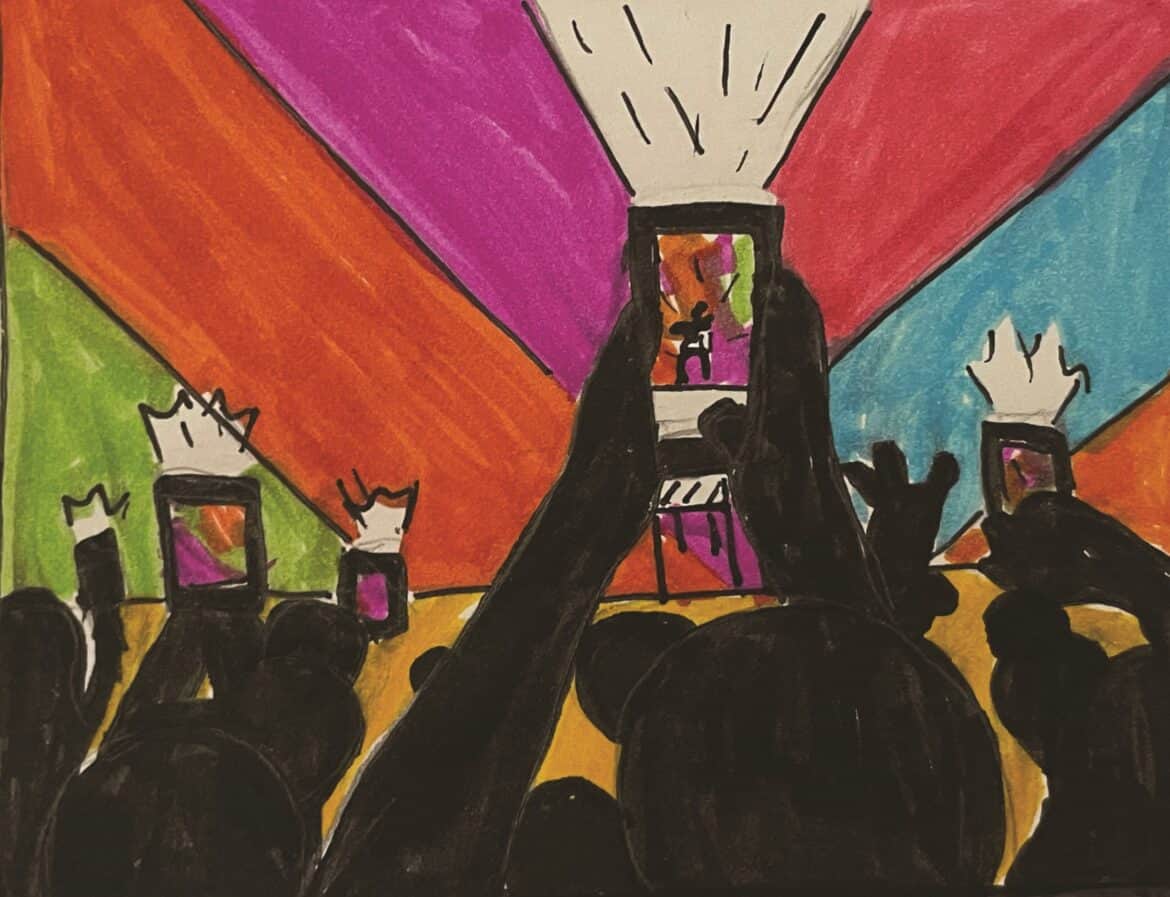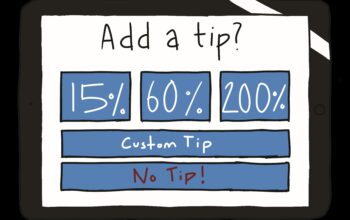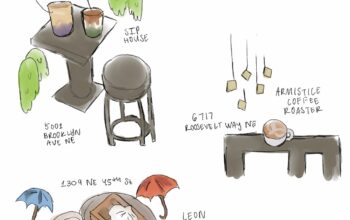Graphic By Caroline Cunningham
Phones have always been the most enticing distraction. We carry these delightful, bright black holes in our pockets and whip them out anywhere and everywhere, concerts included.
On Feb 24, 2022, singer-songwriter Mitski released a tweet on the topic. “I wanted to speak with you about phones at shows,” it read, as she described her resistance towards devices at concerts, voicing that the filming of shows, “[made her] feel as though we are not here together.”
Mitski is far from the first to raise concerns about the spike in phone presence at concerts; artists such as Adele and Jack White have spoken out on the spread of unauthorized footage and in turn, loss of artist revenue. Performances are big money-makers, and fans posting artists online doesn’t contribute directly toward artist income.
Artists such as Beyoncé and Alicia Keys combatted this by fully banning phones from their concerts, while others enacted part-time phone bans. Fans responded with varying opinions, some arguing that the right to record comes with the ticket, others supporting the inverse opinion.
Before phones were around, recording live music was the norm. Musicians like Jerry Garcia and the Grateful Dead encouraged taping shows for marketing benefits, and fans willingly obliged. What then, shifted the dynamic so starkly from one of unspoken agreement to halting dissent?
Parasocial relationships are a quickly increasing, prevalent phenomena, which the website FindaPsychologist.org defines as “one-sided relationships, where one person extends emotional energy, interest and time” and “the [celebrity] persona is completely unaware of the other’s existence.”
Nowadays we know everything under the sun about our favorite stars, from their favorite lip balm, to their charming habits. This constant content surrounding us quickly leads to the impression that we personally know them, though we obviously don’t.
Parasocial relationships are linked to romanticism, the act of making something seem more appealing than in reality. Through filming a concert and seeing their idols through a screen instead of their flaws, concert-goers are saved from having to see artists as human. Phones act as filters of sorts; therefore, if the phone’s there, the fantasy of the artist is there too.
Live music is a gift given by artists and the intent is right in the word — “live.” It isn’t meant to be excessively recorded, to take up gigabytes on phones.
Concert-goers should be conscious of the artist’s preferences, as many prefer a phone-free concert due to disinterest in being consumed for clicks rather than sharing their artistry with those who appreciate it.
If you’re just at a concert to film a TikTok, consider asking yourself whether you deserve that ticket at all.



